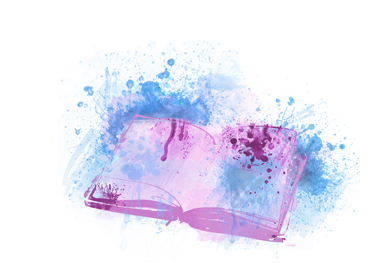My Boots Are Quite Wet
Q.
These days one can find all matter of travel advice:
Are you thinking about traveling with your turtle in summer? Log in, sit back, and scroll through the endless turtle travel tips.
Have you arrived at your remote destination, only to realize that you brought two shoes that don’t match? What to do? If you can get Wi-Fi, you can get suggestions from both those who have made a similar shoe blunder, and those who intentionally travel with mismatched footwear.
Back in the 19th Century, what sort of advice were travellers finding in books and magazines?
A.
We turn, as one example, to H.M.L.S’s 1875 ‘A Few Words of Advice on Travelling and Its Requirements.’ It’s a London-published book ‘Addressed to Ladies.’
Thanks to the railways, the book proclaims, ‘travelling has become a comparatively inexpensive luxury.’
H.M.L.S. offers travel suggestions for different months. January to March? How about starting in Paris, then on to: Marseilles, Cannes, Nice, Monaco, Genoa, Pisa, Rome, Naples, Pompeii, down to Sicily. Come back via Rome, Florence, Bologna, Venice, Milan and Turin. Well, if we must.
In June to September, how about trying a new railway that ventures through the heart of the Black Forest, going from ‘the old mail-line’ to Strasburg at Offenburg, and joining the Swiss lines at Schaffhausen? Also acceptable.
So, what are some of the patented tips for the ladies? Some of H.M.L.S’s advice mirrors what we see today …
.
Relatable 19th Century Travel Tips
• Bring a LBD. Or, in their words: a dress of ‘rich black silk made en traine’, or a good black grenadine.
• Pliable boots are key, ones that allow for foot swelling at the end of the day.
• Don’t travel with your good jewelry, be it of high monetary or sentimental value.
• Visit the family doctor in advance to secure simple medications for ‘slight indispositions, caused by change of water, outdoor sleeping, and over-fatigue.’
• Don’t bother doing the full unpack if you’re only there for a short time.
.
Augustus Leopold Egg. The Travelling Companions. 1862
.
But, many of the tips are very much of the time…
Not So Relatable 19th Century British Travel Tips
• In colder months, avoid white petticoats at all costs. Better to rely on eider-down quilted satin or a ‘good thick striped woollen.’
• One’s outfit should be crafted from lightweight alpaca, ‘made of convenient walking length with a cape or loose jacket and trimmed with anything but flounces. These catch the dust and so soon get shabby.’
• In the heart of winter, ‘under-trousers’ should be sewn in ‘dark flannel, lined with chamois, and faced at the bottoms with the same kind of leather as the skirt.’
• Get you to a good waterproof shop to get a ‘perfectly plain skirt’ made from the finest possible waterproof silk (🤔) or alpaca. The over-dress or cloak should weigh 6 to 8 ounces.
• Stock your traveling medicine kit with: Gregory powder, Chlorodine, Magnesia, Lamplough’s Pyretic Saline, Preparations of Iron, and Quinine.
.
Mary Cassatt. The Boating Party. 1893-94
.
H.M.L.S also offers up time-relevant French and German travel phrases…
19th Century Travel Dictionary
Ladies’ compartment
• Compartiment pour dames seules
• Damen-Coupe
Garters
• Les jarretières
• Die Strümpfbänden
A petticoat
• Une jupe
• Ein Rock
An under-petticoat
• Un jupon
• Ein Unterrock
A busk (the ram-rod rigid part of a corset)
• Un busc
• Ein Blankscheit
The watch-key (to wind up your watch)
• La clef de montre
• Der Uhrschlüssel
A saddler (someone who creates, repairs and sells saddles)
• Un sellier
• Ein Sattler
A smelling bottle
• Un flacon
• Ein Riechfläschen
.
Claude Monet. Hôtel des roches noires. Trouville. 1870
.
A fainting fit
• Un évanouissement
• Eine Ohnmacht
A leech
• Une sangsue
• Ein Blutegel
Bring up the carriage
• Faites advancer la voiture
• Lassen Sie den Wagen vorfahren
I should like a warm bath for my feet
• Je desire avoir un bain de pieds
• Ich wünsche ein warmes Fussbad
Are the sheets well aired?
• Est-ce que les draps de lit ont été bien sêchés?
• Sind die Bettlaken gut ausgelüftet
My boots are quite wet
• Mes bottes sont toutes mouillées
• Meine Stiefel sind ganz nass
Will you have them dried for me by tomorrow morning?
• Faites les sêcher pour demain matin?
• Lassen Sie mir sie bis morgen früh gut trocknen?
I have a trunk, two portmanteaus, and a bonnet-box
• J’ai une malle, deux portmanteaux, et une boîte à chapeau
• Ich habe einen Koffer, zwei Mantelsäcke, und eine Hutschachtel
.
Header Art: Berthe Morisot. Two Sisters on a Couch. 1869











